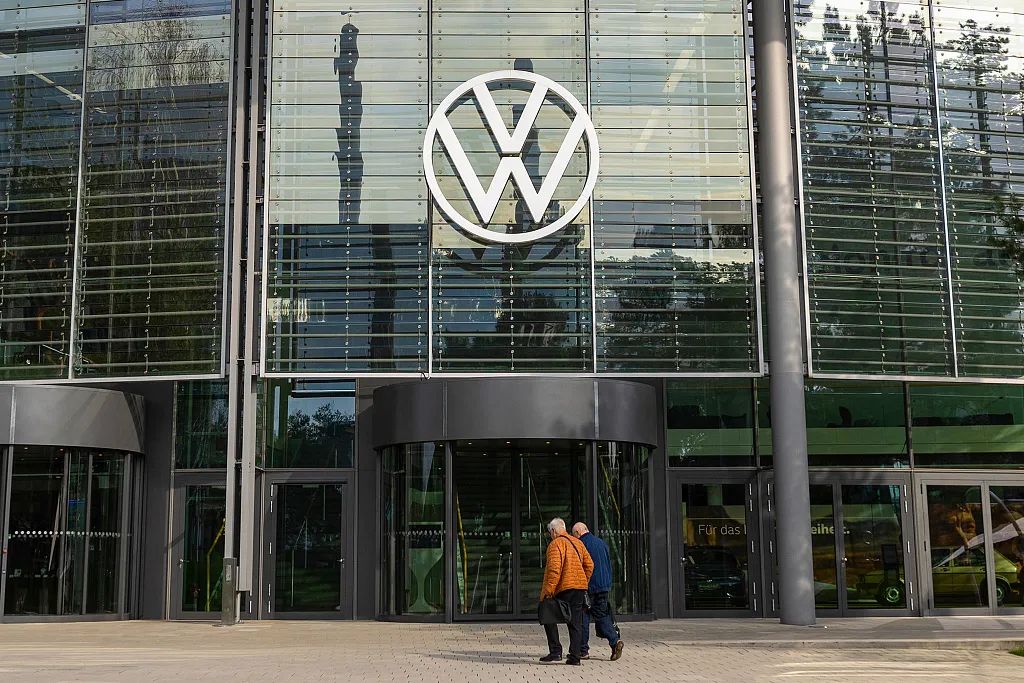
In the turbulent global auto industry, every major decision is like throwing a stone into a lake, causing layers of ripples. Recently, Volkswagen announced that it is considering closing an automobile factory and a parts factory in Germany, which not only shocked the industry, but also triggered a wide range of social concerns and discussions. As the first time in the company's history to implement such measures in Germany, this decision not only marks the deepening of Volkswagen's cost-cutting strategy, but also reveals the urgency and complexity of industry change. This article will delve into the multiple factors behind this decision, reveal the truth behind it, and critically consider the chain reaction it may bring.
On the surface, Volkswagen's decision to close the plant appears to be a direct response to cost control. According to the Financial Times, the company's cost-cutting plan failed to deliver the desired results last year, causing the flagship brand to fall into the red. Faced with such financial pressure, closing down some production facilities to reduce the burden seems to have become a "must do" choice. However, in-depth analysis of this decision, we are not difficult to find that behind it hidden deeper industry change and strategic adjustment needs.
First, the rise of electric vehicles is reshaping the automotive landscape. The shrinking of the traditional fuel vehicle market and the rapid growth of the new energy vehicle market require car companies to continuously increase investment in new energy technology, product research and development and market promotion. This is undoubtedly worse for Volkswagen, which is already facing financial pressure. Closing some of the fuel vehicle factories with excess capacity and focusing resources on new energy vehicles with more growth potential has become a plausible strategic adjustment.
But the key question is whether this adjustment will really solve Volkswagen's fundamental problems. Although the closure of the factory can save money in the short term, in the long run, if it can not effectively improve the market competitiveness of new energy vehicles, it is still difficult to get rid of the predicament of loss.
What is particularly striking is that Volkswagen's decision also involves the abandonment of its commitment not to cut jobs until 2029. This move is undoubtedly a huge blow to the trust of employees, but also triggered widespread doubts from all walks of life. In the context of globalization, the trust relationship between companies and employees is already fragile, and Volkswagen's move has undoubtedly exacerbated this crisis of trust.
Daniel Cavallo, chairman of Volkswagen's works council, said in the report that the executive board was reassessing the sustainability of the German plant, internal wage agreements and employment guarantee programs. Behind this statement, it is revealed that the company is deeply worried about the current business environment and helpless compromise on the uncertainty of the future. However, for employees, this practice of sacrificing their interests in exchange for the survival of the company is undoubtedly unacceptable.
Notably, Volkswagen shares rose 1.7% after the announcement of the plant closure plan, which seems to indicate that the market is positive about the decision. However, this positive reaction is based more on the market's recognition of Volkswagen's cost-cutting ability than on optimistic expectations for its future development strategy.
The Osnabruck and Dresden plants are widely seen by analysts as potential closure targets due to their high operating costs and productivity issues. However, the closure of these factories will not only affect the local economic development and employment stability, but also may trigger a series of chain reactions, such as the readjustment of supplier relations and the decline of customer trust.
Volkswagen CEO Oliver Blum's remark that "the European automotive industry is facing a very serious and critical situation" sums up the tough situation for the entire industry. Under the double impact of the downward pressure of the global economy and the technological change of new energy vehicles, traditional automobile manufacturers in Europe are facing unprecedented challenges.
Volkswagen's decision to close its German plants is a case in point but a microcosm of the industry's woes. In the face of difficulties, do enterprises choose to stick to tradition and survive, or to innovate and seek breakthroughs? This is not only a question that Volkswagen needs to answer, but also a choice that all traditional automakers must face.
Volkswagen's decision to close its German plants is a complex and sensitive subject. It involves enterprise management strategy, employee benefit, social responsibility and so on. While criticizing this decision, we should also think deeply about the deep reasons behind it and the development trend of the industry.
First, Volkswagen should more critically assess the feasibility and sustainability of its cost-cutting strategy and avoid making short-term gains at the expense of employees. Secondly, the company should increase research and development investment in the field of new energy technology, enhance product competitiveness, in order to meet the challenges of industry change. Finally, the government and all sectors of society should also strengthen the support and guidance of the automobile industry, and jointly promote the sustainable development of the industry.
In short, although the decision of Volkswagen to close its German plant is reasonable, it also exposes the helplessness and dilemma of enterprises in the face of industry changes. Only through continuous innovation and efforts, can we remain invincible in the fierce market competition.

The U.S. third-quarter GDP growth rate, strikingly highlighted at 4.3%, not only surpassed market expectations but also earned the label of "the fastest in two years."
The U.S. third-quarter GDP growth rate, strikingly highligh…
Recently, US personnel intercepted a "Century" super oil ta…
According to Xinhua News Agency, the subtle changes in the …
The rapid development of artificial intelligence has brough…
In December 2025, Taiwan's political scene was shaken by a …
When Apple appears for the Nth time on the list of penaltie…